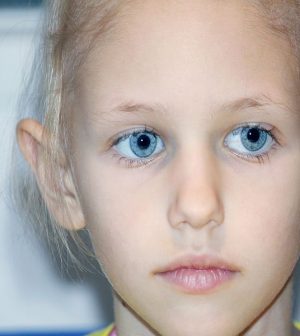- Could Your Grocery Store Meat Be Causing Recurring UTIs?
- Are You Making This Expensive Thermostat Error This Winter?
- Recognizing the Signs of Hypothyroidism
- 10 Strategies to Overcome Insomnia
- Could Artificial Sweeteners Be Aging the Brain Faster?
- Techniques for Soothing Your Nervous System
- Does the Water in Your House Smell Funny? Here’s Why
- Can a Daily Dose of Apple Cider Vinegar Actually Aid Weight Loss?
- 6 Health Beverages That Can Actually Spike Your Blood Sugar
- Treatment Options for Social Anxiety Disorder
Childhood Chemo May Have Lasting Effects on Memory

Childhood cancer survivors who had chemotherapy may have certain types of thinking and memory problems as young adults, a small study suggests.
Belgian researchers assessed 31 young adults who had undergone chemotherapy. They were at an average age of slightly over 6 when they had the treatment. The researchers compared them with a control group of young adults who hadn’t received chemotherapy.
Both groups had similar scores on tests of long-term memory and ability to concentrate. Those are skills that developed before the cancer survivors underwent chemotherapy, the researchers said.
But compared to the control group, the cancer survivors had poorer thinking flexibility and short-term memory. These skills develop at a later age, the researchers explained.
“Tests that require quick switching between tasks or remembering new information for a short amount of time were clearly more difficult for former cancer patients. The developmental stage of the brain at the start of the cancer treatment probably plays a decisive role,” said Iris Elens, a psychiatrist in training, and Rudi D’Hooge, a professor at the University of Leuven.
The researchers also measured levels of protein called p-Tau in the patients’ brain fluid. The protein is part of the internal structure of nerve cells.
“Our team collected samples of brain fluid during the cancer treatment. We analysed the p-Tau levels to measure the damage to the brain cells. We found that high concentrations of p-Tau predict cognitive problems at a later age,” D’Hooge said.
“If we systematically measure these p-Tau levels in the future we can offer specific help to children with high values. With early coaching aimed at the most relevant functions we can prevent problems that would otherwise manifest 10 to 15 years after the treatment,” Elens said.
The study was published June 14 in the Journal of the National Cancer Institute.
More information
The U.S. National Cancer Institute has more on the late effects of treatment for childhood cancer.
Source: HealthDay
Copyright © 2026 HealthDay. All rights reserved.










